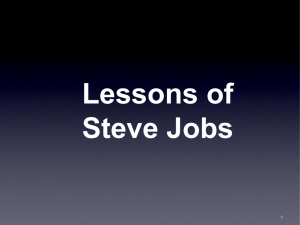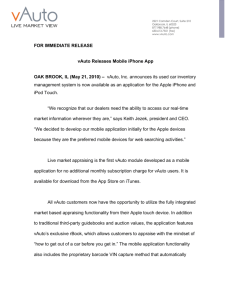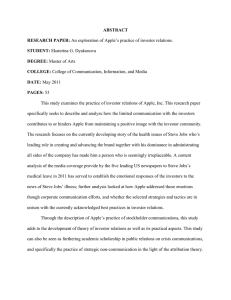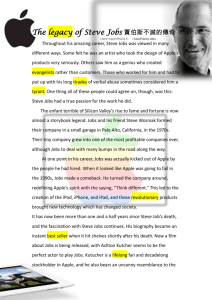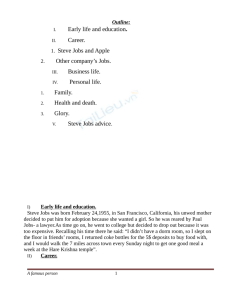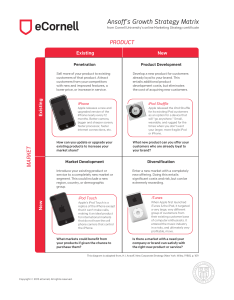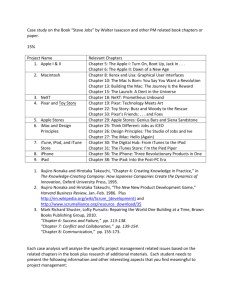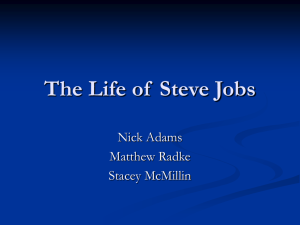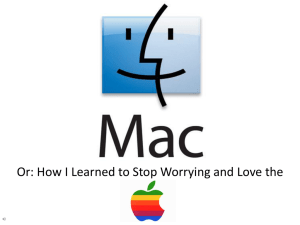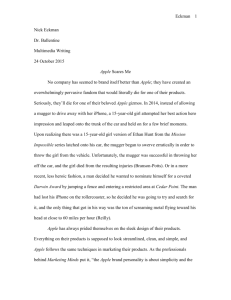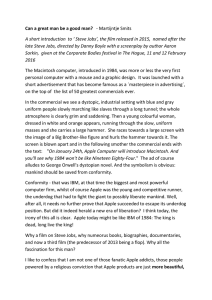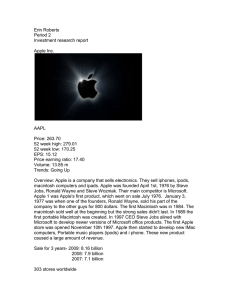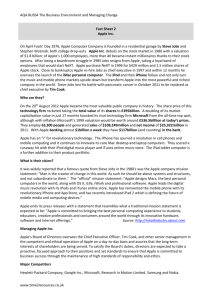Steve Jobs
advertisement
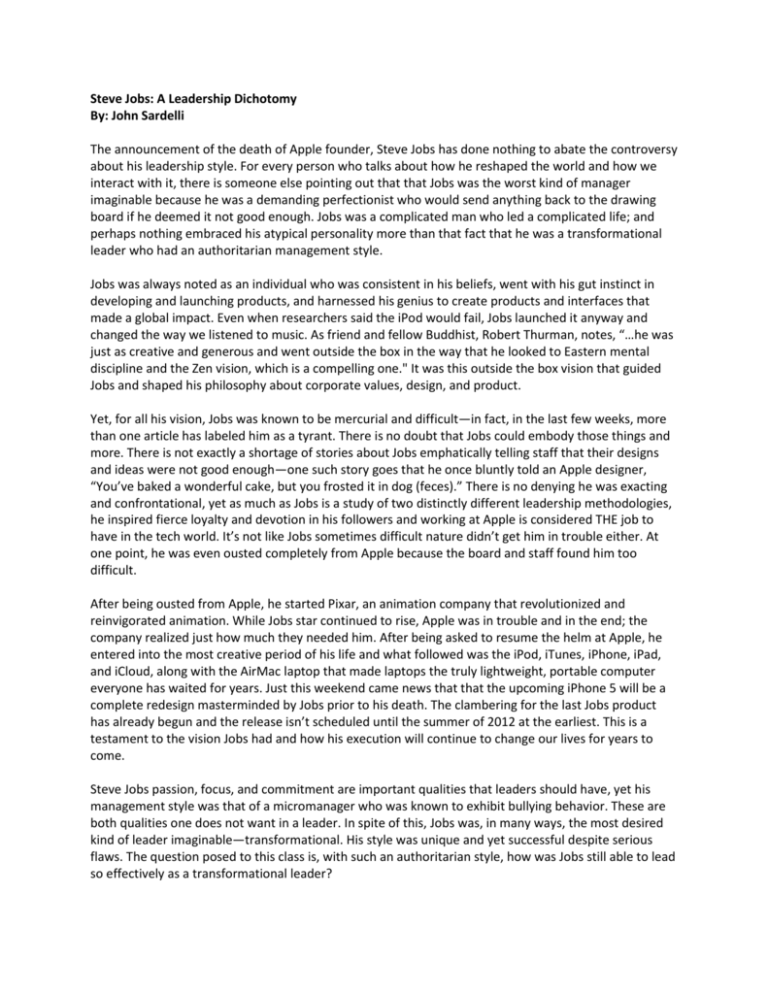
Steve Jobs: A Leadership Dichotomy By: John Sardelli The announcement of the death of Apple founder, Steve Jobs has done nothing to abate the controversy about his leadership style. For every person who talks about how he reshaped the world and how we interact with it, there is someone else pointing out that that Jobs was the worst kind of manager imaginable because he was a demanding perfectionist who would send anything back to the drawing board if he deemed it not good enough. Jobs was a complicated man who led a complicated life; and perhaps nothing embraced his atypical personality more than that fact that he was a transformational leader who had an authoritarian management style. Jobs was always noted as an individual who was consistent in his beliefs, went with his gut instinct in developing and launching products, and harnessed his genius to create products and interfaces that made a global impact. Even when researchers said the iPod would fail, Jobs launched it anyway and changed the way we listened to music. As friend and fellow Buddhist, Robert Thurman, notes, “…he was just as creative and generous and went outside the box in the way that he looked to Eastern mental discipline and the Zen vision, which is a compelling one." It was this outside the box vision that guided Jobs and shaped his philosophy about corporate values, design, and product. Yet, for all his vision, Jobs was known to be mercurial and difficult—in fact, in the last few weeks, more than one article has labeled him as a tyrant. There is no doubt that Jobs could embody those things and more. There is not exactly a shortage of stories about Jobs emphatically telling staff that their designs and ideas were not good enough—one such story goes that he once bluntly told an Apple designer, “You’ve baked a wonderful cake, but you frosted it in dog (feces).” There is no denying he was exacting and confrontational, yet as much as Jobs is a study of two distinctly different leadership methodologies, he inspired fierce loyalty and devotion in his followers and working at Apple is considered THE job to have in the tech world. It’s not like Jobs sometimes difficult nature didn’t get him in trouble either. At one point, he was even ousted completely from Apple because the board and staff found him too difficult. After being ousted from Apple, he started Pixar, an animation company that revolutionized and reinvigorated animation. While Jobs star continued to rise, Apple was in trouble and in the end; the company realized just how much they needed him. After being asked to resume the helm at Apple, he entered into the most creative period of his life and what followed was the iPod, iTunes, iPhone, iPad, and iCloud, along with the AirMac laptop that made laptops the truly lightweight, portable computer everyone has waited for years. Just this weekend came news that that the upcoming iPhone 5 will be a complete redesign masterminded by Jobs prior to his death. The clambering for the last Jobs product has already begun and the release isn’t scheduled until the summer of 2012 at the earliest. This is a testament to the vision Jobs had and how his execution will continue to change our lives for years to come. Steve Jobs passion, focus, and commitment are important qualities that leaders should have, yet his management style was that of a micromanager who was known to exhibit bullying behavior. These are both qualities one does not want in a leader. In spite of this, Jobs was, in many ways, the most desired kind of leader imaginable—transformational. His style was unique and yet successful despite serious flaws. The question posed to this class is, with such an authoritarian style, how was Jobs still able to lead so effectively as a transformational leader?

